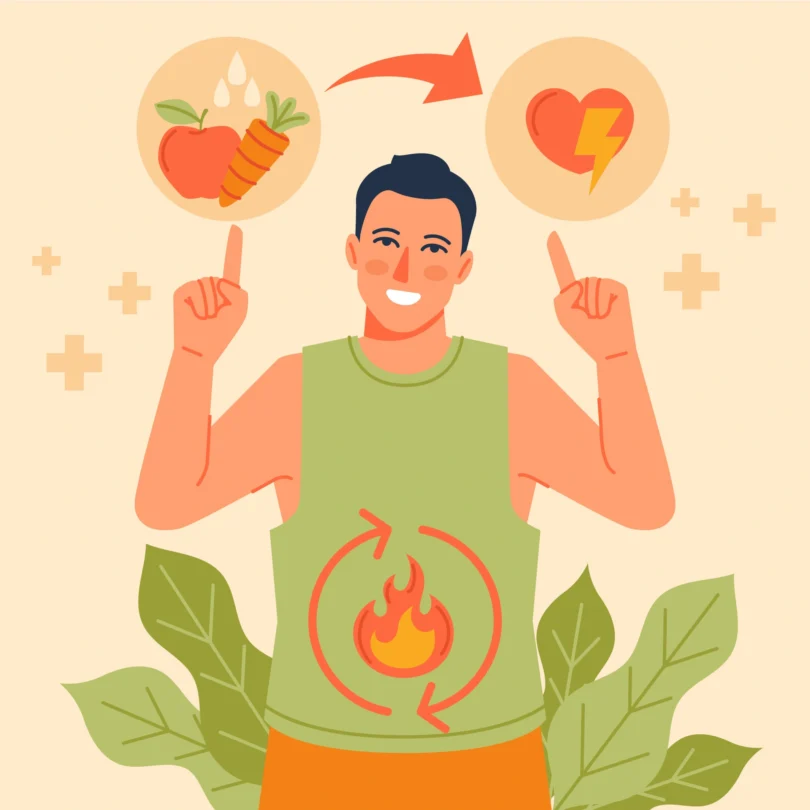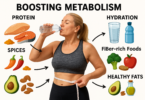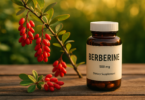Have you ever wondered why you feel fatigued after meals, battle with getting rid of stubborn weight, or why you always think about the sweet snacks? This frustrating feeling is something we all experience. What you may be feeling is likely insulin resistance – a condition that affects millions of people all over the world without a lot of them knowing it.
Insulin resistance is when your tissues, commonly referred to as cells, in the body do not respond well to insulin; this hormone helps control sugar in the blood. In other words, your body is telling your cells to open the door to absorb sugar, and your cells are either telling insulin to go away or not hearing its important message! This could lead to metabolic dysfunction, which is a serious concern as a global issue linked directly to diabetes, heart disease, and metabolic syndrome.
The statistics are alarming; however, there is a bright side. By becoming aware of how your body works and understanding what to do, you can reclaim your health. So let’s begin this journey.
What is Insulin Resistance?
Insulin resistance develops when the body’s cells fail to utilise insulin as they should, when glucose (sugar) is moved from the blood into the cells to be used for energy. The pancreas then works harder and releases more insulin to keep your blood sugar normal, which has implications over time (higher blood sugar, storing more fat, particularly in the belly, and an increased risk of type 2 diabetes and other metabolic issues). Insulin resistance can be affected by lifestyle factors such as excess weight, low physical activity, and diets with many processed foods, but many are able to overcome or improve these through positive lifestyle behaviors
Insulin Resistance Causes
Learning about the causes of insulin resistance allows us to feel less helpless and more motivated and capable of making positive changes. The fact is, there are multiple contributors to this process and identifying them is a great first step toward your greater health.
Excess body fat, especially in the abdominal area (visceral obesity), takes on a leading role when it comes to insulin resistance. This is not about shaming or blaming, but rather about knowing that belly fat is interfering with the processes of our insulin-regulating capacity. Your genetic component plays a factor, but not an insurmountable one. Just because insulin resistance may be in your family’s genome, it is entirely possible to adopt a lifestyle that prevents insulin resistance components from developing into dramatic insulin issues.
Poor physical activity creates an ideal storm for insulin resistance to develop. As we become more and more sedentary as a species, our muscles become increasingly inefficient at utilizing glucose, and this puts added stress on our pancreas. Likewise, diets high in refined carbs and saturated fats are ever detrimental to our insulin systems. According to a research article published in PubMed Central identified lifestyle choices as contributing factors to the development of insulin resistance.
The good news? You can change most of these things.
Insulin Resistance Symptoms
Your body is constantly speaking to you. Insulin resistance often has some distinct ways of getting your attention. Unfortunately, many people simply see these signals as a normal part of aging or stress. The symptoms of your insulin resistance are worthy of your serious consideration. The common symptoms that a person will recognize include ongoing fatigue that doesn’t improve with rest, unexplained weight gain (especially in the midsection), increased hunger even after eating, and the inability to lose weight even after doing everything right you’ve been told to lose weight. You may also notice increased brain fog, mood swings, or even that “crash” feeling after eating.
The metabolic effects do not stop there. Your body will have hyperglycemia (high blood sugar), hypertension (high blood pressure), and dyslipidemia (abnormal cholesterol) etc. There will also be much more inflammation throughout the whole body, and poor blood vessel function. PubMed Central research has shown that these metabolic effects trigger a domino effect which then causes far more problems for your health.
The list of issues includes type 2 diabetes, heart disease, PCOS (polycystic ovary syndrome), non-alcoholic fatty liver disease (NAFLD), and much more. It has been studied extensively, and those who become insulin resistant its apparent they all have a common denominator that is linked to these health problems.
Insulin Resistance and Belly Fat
Belly fat, or as it is sometimes referred to, especially the fat deep inside your belly around your organs, can contribute to the inability of your body to utilize insulin the way that it should. The fat will release substances that increase inflammatory markers in the body and make it difficult for insulin to perform the function it’s intended to do. When insulin cannot do its job effectively, your blood sugar will be elevated because insulin cannot help with absorption into the cells.
People with more belly fat will also have a risk of developing insulin resistance and progressing to type 2 diabetes. While someone may not be generally overweight, excess fat in the abdomen can also contribute to the risk of insulin resistance. Therefore, monitoring the predicaments of excess belly fat through good eating, exercise, and staying active is a way to support insulin function and general well-being.
Getting Properly Diagnosed
Here is something to consider, which may be surprising: there is no one single definitive test for insulin resistance. It can feel frustrating to learn this, but being educated about the diagnostic process will allow you to advocate for your health a little better.
Health professionals typically look at common clinical markers such as fasting glucose levels, fasting insulin, and the calculated HOMA-IR (Homeostatic Model Assessment of Insulin Resistance). These clinical markers contribute to the overall perspective of how the body manages blood sugar and handles insulin.
Being diagnosed early is helpful for prevention rather than needing to treat something. Whenever someone recognizes symptoms or has risk factors present, it is important not to wait until symptoms escalate with diabetes or cardiac disease. Having a conversation with your healthcare provider regarding screening could be one of the most important conversations you will have regarding your health and well-being for the long term.
Insulin Resistance Treatment
The process of overcoming insulin resistance is multifaceted, but the good news is that lifestyle interventions have been shown to be remarkably successful. You could side more with having control of the condition than you think.
Lifestyle interventions are part of a treatment regimen, and exercising regularly will help to improve your insulin sensitivity almost immediately as your muscles start to utilise glucose more with each exercise session. Making dietary changes such as calorie restriction, along with consuming low glycemic load foods, directly address the problem. Losing weight, even modest amounts, can significantly improve insulin function. Studies have conducted these lifestyle treatment approaches as first-line treatments.
The utilization of “supplements,” should be more scientifically established. Polyphenols and dietary fibres may be showing some promise for human studies, providing improved insulin sensitivity. The PubMed Central studies on polyphenols indicate that these may enhance your body’s response to have additional insight into how they respond to insulin in a natural way.
5 Best Steps For Insulin Resistance
1- Omega-3 Supplements
Everyone should consider omega-3 supplementation. Studies show that omega-3 fatty acids reduce inflammation and improve HOMA-IR scores through their impact on adipokines (fat cell hormones). To summarise, omega-3 supplements provide anti-inflammatory effects when trying to deal with insulin resistance.
2- Vitamin D Supplements
Lots of studies have shown that vitamin D enhances insulin sensitivity in many different populations. In fact, most people are deficient without even realising it.
3- Probiotic Supplements
Because of the impressive amount of evidence emerging, it appears your gut microbiome is affecting insulin resistance more than first imagined. Surprising evidence from PubMed Central studies demonstrated that probiotics increase positive gut bacteria and the studies documented reductions in insulin resistance.
4- Whole Flaxseed
You can make a very simple change in your diet and gain very substantial benefit. Evidence in PubMed Central showed that whole flaxseeds increase all biomarkers of insulin resistance and decreases blood glucose.
5- Used Exercise Equipment
If you want to invest in equipment to help add to your aerobic training or resistance training, this will be valuable in regard to the insulin resistance component. Many studies have shown that aerobic exercise, in conjunction with resistance exercise, produces additive improvements in insulin resistance. In short, think about investing in a treadmill, a set of resistance bands, and a set of dumbbells.
Common Questions regarding Insulin Resistance

If I do not treat insulin resistance, what can happen?
Potentially increased risk for type 2 diabetes, heart disease, hypertension, PCOS, NAFLD. The longer it is left unattended, the worse these risks become.
How do I prevent insulin resistance?
Avoid excess body weight, eat a diet of whole foods that avoids, refined carbohydrates, exercise moderately to vigorously consistently and avoid inactivity. Remember, any small ‘forever change’ that you can make has the potential to lead to healthier outcomes.
What tests are best for insulin resistance?
Presently, the health care providers will conduct three tests: fasting blood glucose, fasting insulin and calculated HOMA-IR pneumonia. Multi-analytical levels made by blood tests are done to provide a complete insight into insulin resistance.
Do supplements help with insulin resistance?
There is evidence for using polyphenols, anthocyanins, and dietary fiber as recommendations to improve insulin sensitivity, but results vary. It is important to note that supplements work best when used together with lifestyle changes, not instead of
Time to make a move for your health

Insulin resistance does not have to be a part of your eventual health story. Recognizing the state is only the first step. Change is something to embrace and create transformation. Change starts proactively using the above symptoms from early on and continues making lifestyle retreats. Any small change – to take a 10-minute walk after dinner instead of a 30-45-minute walk, or substituting whole grains for white stuff – each makes a contribution and adds to healing your body.
Do not forget, you do not have to do this on your own if you suspect insulin resistance – as mentioned above, there are health care professionals out there who would love to help coach you in using your health to alleviate symptoms and support any medical care, they also can assist in monitoring your return of changes.
Your health, and your family’s health, are worthy of the time and negativity you will need to invest in making your health changes. It also might be helpful to share this with friends or family who could benefit from this – when we work on making health changes and informing people about the potential for insulin resistance, we may very well be saving people’s lives. Share this article on your own social media to inform others about insulin resistance!
Your journey for improving insulin sensitivity starts at your next decision. Make it a healthy one.
Need to know someone about insulin resistance? Share this with them. Let’s work together to create some awareness and provide support for each other to better health!
Join Our Community of Health Enthusiasts!
Every week, we bring you positive stories from people who are actively looking after their health and wellbeing. From natural health nuggets to day-to-day wellness tips you can put into practice no matter what lifestyle you lead, this is a place for anyone dedicated to living their healthiest life, no matter what their age.
You don’t want to miss the next advance in helping you with your health journey. Register for our free newsletter and join the tens of thousands of others who have found that the best health is always within reach.
✉️ Subscribe now and get:
- Weekly evidence-based health insights
- Exclusive wellness guides and recommendations
- True success stories from our community members
Your healthiest chapter is still to come. Let’s create it together.
Subscribe here – It’s Free
Disclaimer:
This blog post is for informational purposes only and is not intended as medical advice. Always consult with a qualified healthcare professional before making any changes to your diet, exercise routine, or healthcare plan. The information provided is based on personal research and experience and may not apply to everyone






